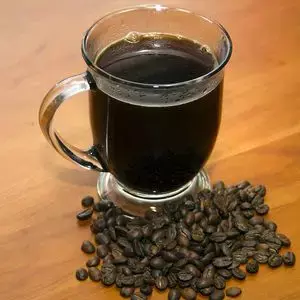- Home
- Medical news & Guidelines
- Anesthesiology
- Cardiology and CTVS
- Critical Care
- Dentistry
- Dermatology
- Diabetes and Endocrinology
- ENT
- Gastroenterology
- Medicine
- Nephrology
- Neurology
- Obstretics-Gynaecology
- Oncology
- Ophthalmology
- Orthopaedics
- Pediatrics-Neonatology
- Psychiatry
- Pulmonology
- Radiology
- Surgery
- Urology
- Laboratory Medicine
- Diet
- Nursing
- Paramedical
- Physiotherapy
- Health news
- Fact Check
- Bone Health Fact Check
- Brain Health Fact Check
- Cancer Related Fact Check
- Child Care Fact Check
- Dental and oral health fact check
- Diabetes and metabolic health fact check
- Diet and Nutrition Fact Check
- Eye and ENT Care Fact Check
- Fitness fact check
- Gut health fact check
- Heart health fact check
- Kidney health fact check
- Medical education fact check
- Men's health fact check
- Respiratory fact check
- Skin and hair care fact check
- Vaccine and Immunization fact check
- Women's health fact check
- AYUSH
- State News
- Andaman and Nicobar Islands
- Andhra Pradesh
- Arunachal Pradesh
- Assam
- Bihar
- Chandigarh
- Chattisgarh
- Dadra and Nagar Haveli
- Daman and Diu
- Delhi
- Goa
- Gujarat
- Haryana
- Himachal Pradesh
- Jammu & Kashmir
- Jharkhand
- Karnataka
- Kerala
- Ladakh
- Lakshadweep
- Madhya Pradesh
- Maharashtra
- Manipur
- Meghalaya
- Mizoram
- Nagaland
- Odisha
- Puducherry
- Punjab
- Rajasthan
- Sikkim
- Tamil Nadu
- Telangana
- Tripura
- Uttar Pradesh
- Uttrakhand
- West Bengal
- Medical Education
- Industry
Coffee consumption may prolong prostate cancer-specific survival, study finds

USA: In a large study published in European Urology Oncology, coffee consumption in men with prostate cancer and fast caffeine metabolism are associated with a more extended prostate cancer-specific survival (PCSS).
Coffee is known to have several bioactive compounds and plant-derived antioxidants that lower systemic inflammation. Therefore, coffee can potentially lower the progression of solid malignancies, and its intake has been associated with lower colorectal cancer recurrence rates and related mortality. Also, a higher intake of coffee has been tied to a lower risk of prostate cancer, but not many studies have evaluated associations between coffee consumption and survival after the diagnosis of prostate cancer.
The −163A>C (rs762551) single-nucleotide variant (SNV; *1F allele) indicates the enzyme activity of cytochrome P450 1A2 (CYP1A2). It is used to categorize people as fast or slow caffeine metabolizers.
Against the above background, Justin R. Gregg, Department of Urology, Division of Surgery, University of Texas, Houston, TX, USA, and colleagues sought to find out the relationship between coffee intake, rs762551 genotype, and survival. They used an extensive consortium database of prostate cancer cases followed for death due to prostate cancer and other causes.
The researchers hypothesized that a higher intake of coffee would be tied with prostate cancer-specific–survival, specifically for men who are fast caffeine metabolizers.
For this purpose, the researchers included data from the PRACTICAL Consortium database for 5727 men with prostate cancer from seven studies in Australia, the US, and Europe. The cases included contained data available for the CYP1A2 −163C>A rs762551 single-nucleotide variant associated with coffee intake, caffeine metabolism, and >6 mo of follow-up.
The effect of coffee intake (classified as low [reference], high, or none/very low) was compared using multivariable-adjusted Cox proportional hazards models across pooled patient-level data concerning prostate cancer-specific survival and overall survival (OS).
Based on the study, the researchers reported these findings:
· High coffee intake appeared to be associated with longer PCSS (hazard ratio [HR] 0.85) and overall survival (HR 0.90), although results were not statistically significant.
· In the group with clinically localized disease, high coffee intake was tied to a longer PCSS (HR 0.66), with comparable results for the group with advanced disease (HR 0.92).
· High coffee intake was associated with longer PCSS among men with the CYP1A2 AA (HR 0.67) but not the AC/CC genotype; an interaction was detected.
· No associations with OS were observed in subgroup analyses.
· Limitations include the nominal statistical significance and residual confounding.
"Among men with a CYP1A2 −163AA (*1F/*1F) genotype, coffee intake was associated with a longer prostate cancer-specific survival," the researchers wrote. "More research is needed to understand which men may benefit and why fully."
Reference:
Gregg JR, Kim J, Logothetis C, Hanash S, Zhang X, Manyam G, Muir K; UKGPCS Collaborative Group, Giles GG, Stanford JL, Berndt SI, Kogevinas M, Brenner H, Eeles RA; PRACTICAL Consortium, Wei P, Daniel CR. Coffee Intake, Caffeine Metabolism Genotype, and Survival Among Men with Prostate Cancer. Eur Urol Oncol. 2022 Aug 19:S2588-9311(22)00138-9. doi: 10.1016/j.euo.2022.07.008. Epub ahead of print. PMID: 35995710.
Dr Kamal Kant Kohli-MBBS, DTCD- a chest specialist with more than 30 years of practice and a flair for writing clinical articles, Dr Kamal Kant Kohli joined Medical Dialogues as a Chief Editor of Medical News. Besides writing articles, as an editor, he proofreads and verifies all the medical content published on Medical Dialogues including those coming from journals, studies,medical conferences,guidelines etc. Email: drkohli@medicaldialogues.in. Contact no. 011-43720751


